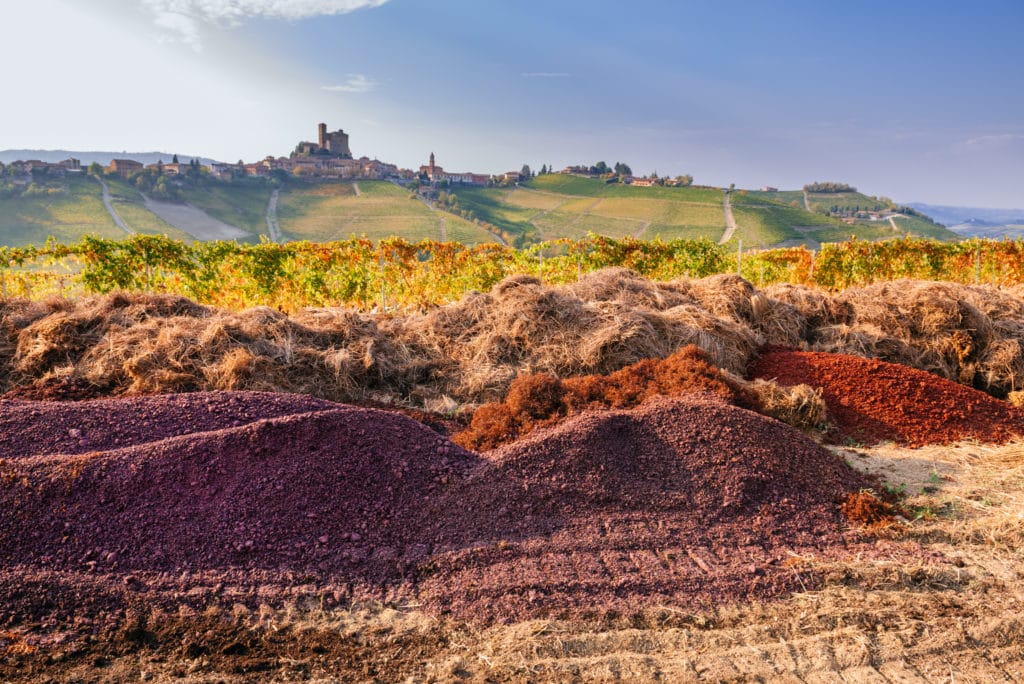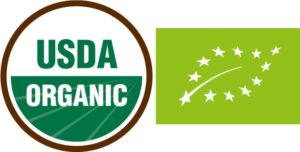What is Natural Wine?
This Wednesday, April 22nd will mark the 50th Anniversary of the first official Earth Day, in 1970. Credited with launching the modern environmental movement, Earth Day is a celebration of everything we should be doing year-round to protect our planet. In the wine industry, discussions of Earth and environmental concerns usually lead quickly to the topic of Natural Wine.
So, what is Natural Wine? Unfortunately, there is not one definition of Natural Wine and lots of different opinions on what the term constitutes. According to the latest edition of The Oxford Companion to Wine, “Natural Wine” possesses the following characteristics: “Grapes are typically grown by small-scale, independent producers. Grapes are hand-picked from sustainable, organic, or biodynamic vineyards. Wine is fermented with no added yeast (i.e. native yeasts), no additives are included in fermentation, and little or no sulfites are added.” Although a solid basic definition, there is no regulated set of truths that dictate whether a wine counts as “Natural” or not. This makes the movement all the more difficult to decipher.
Though we can use the three categories of Sustainable Farming, Organic Farming, and Biodynamics as reference points for our understanding. When we talk about the differences between these movements, it is best to look at the founding principles of each.
Sustainable Farming
The most “bare bones” approach to natural winemaking is “Sustainable Farming,” which focuses on mitigating and reducing the wastefulness often associated with farming and winemaking processes.
Organic Farming
The basic tenet behind Organic Farming is achieving purity of product through the use of non-synthesized ingredients.
Biodynamics
For Biodynamics, it is all about holistic agricultural health. Biodynamics goes one step further than Organics by asserting that all living things are interrelated systems: animals, plants, and the solar system. You create healthier plants and heal the earth by replenishing the soil. Dr. Rudolf Steiner, a philosopher and scientist, is credited as the founder of Biodynamics. His 1924 lectures to farmers offered a new way to integrate scientific understanding with a recognition of “spirit” in nature. You can find more information on the philosophy and methodology of this sometimes-mysterious farming approach at the Biodynamic Association’s website. They also have a great list of book recommendations, if you’re craving a deeper dive into the subject.
As you may have experienced, “Natural Wine” has become a buzz-phrase in recent years, following on other similarly-trendy, sustainability-focused movements like “Farm to Table.” And, despite their legitimacy and good intentions, these overused phrases have become passé and their nuance flattened. Specifically, I find that many Natural Wine discussions inevitably lead to a debate about sulfites. In an article titled “The Truth About Sulfites in Wine & the Myths of Red Wine Headaches,” author Mary Gorman-McAdams discusses the inconsistent information circulated around the elusive chemical. “The term ‘sulfites’ is an inclusive term for sulfur dioxide (SO2), a preservative that’s widely used in winemaking (and most food industries) for its antioxidant and antibacterial properties. SO2 plays an important role in preventing oxidization and maintaining a wine’s freshness.” Additionally, “wine contains about ten times less sulfites than most dried fruits, which can have levels up to 1000 ppm,” (as compared to a maximum of approximately 200 ppm in red or white wine). And the majority of honest winemakers keep sulfite levels well below the maximum permitted limits. Bottom line, it’s unlikely that sulfites are to blame for your wine headaches.

Compost at Rivetto – biodynamic and organic winery
Certifications Yay or Nah?

Since the 2012 vintage, the European Union has implemented definingregulations for organic wine: the EU organic certification. Ecocert (currentlynot allowed on bottles in the US per the FDA) regulates farming practices, including banning GMOs and limiting sulfur additions. There are also several organic, biodynamic, and sustainable certifications a winery can include on their label, though not all are equal and not every winery can afford them. Many winemakers operate as de facto organic or biodynamic without displaying a certification on their labels. It is also important to remember that not all certifications regulate the holistic process from vineyards to bottle, leaving room for wineries to unnaturally manipulate their wines at specific points in the process without being required to disclose it.
Setting aside certifications, I think we should get back to Honest Wine: wine made with the least amount of intervention from grape to glass, with grapes grown in the vineyard with Sustainable/Organic/Biodynamic/Polyculture farming practices, and that speaks of its terroir and origin. As a consumer, ask yourself, who do you trust to give you the most complete information on the wine you drink? What do you prioritize when selecting a wine?
My advice is to shop local and develop a relationship with your local bottle shop wine professional or the sommelier at your favorite restaurant. They will enthusiastically guide you! And don’t forget to check the back label of each new bottle. Learning to trust the integrity of a specific importer’s portfolio will lead you on fascinating and delicious wine journeys.
—–

Written by Sarah Shomaker, April 21, 2020
Sarah Shomaker is a founding member and the current president of Colorado Natural Wine Week Consortium—established in 2014. Her family (husband) farms 14-acres organically between two historic farm properties in Brighton and Arvada, CO and an acre at Chatfield Botanic Gardens, where he studies heirloom wheat varietals.
